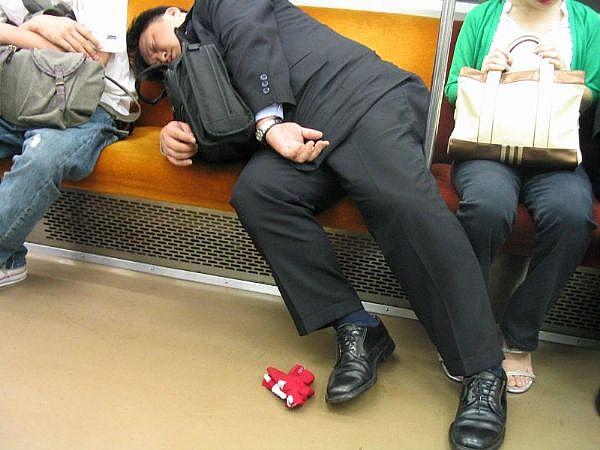
Once upon a time, I lived a fairly normal and routine life. I woke up around 7:00 every morning, ate some breakfast, went to class, made my way to work, and came home and dozed off at a decent hour. Over time, I started going to bed later...and later...and later. Now, it's to the point that my body probably doesn't even have a circadian rhythm anymore. I'm awake until I can't function anymore and I wake up about the same time every morning, regardless of how long – or little – I've been sleeping. What happened exactly?
As much as I would love to blame it on my new neighbors blaring Dora the Explorer at 2 AM or randomly vacuuming throughout the night, technology is to blame. I bought my first smartphone, a PS3, and other tinker-toys and my sleeping habits went down the drain. The more gadgets and gizmos I get my hands on, the worse it gets. Based on a study done by the National Sleep Foundation (NSF), I'm not alone.
It isn't just the use of technology alone though, it's use during a very critical time. The study found that 95% of the people surveyed use electronic devices (computer, TV, cell phone, etc.) within the hour before bed. This can affect the quality of sleep, the time that you may fall asleep, and much more. Charles Czeisler, PhD, MD, of Harvard Medical School and Brigham and Women's Hospital states:
“Artificial light exposure between dusk and the time we go to bed at night suppresses release of the sleep-promoting hormone melatonin, enhances alertness and shifts circadian rhythms to a later hour—making it more difficult to fall asleep,” and that the study “reveals that light-emitting screens are in heavy use within the pivotal hour before sleep. Invasion of such alerting technologies into the bedroom may contribute to the high proportion of respondents who reported that they routinely get less sleep than they need.”
After I finish working each night, I turn on Netflix and watch an episode or two of some of my favorite shows, play video games, tweet, text friends, catch up on blogs and Facebook, and more. Before I know it, it's usually 4 AM or later. Even when I do fall asleep at a decent hour – usually because I can't keep my eyes open any longer – the quality of sleep is terrible and I wake up groggy and unrested. I've talked with several friends and family members about it and many of them suffer from the same problems.
I've been dealing with this terrible case of insomnia for the past year or more. Who knew that all of my technology was the root of the problem? (I did, I just refused to admit it.)
For better sleep habits, NSF suggests that you remove all technology from your bedroom and that if you have to use a device with a back-lit display at night, turn down the brightness. Allison Harvey, PhD, behavioral sleep expert at UC Berkley, says, “Create a relaxing wind-down routine and turn down the lights. Make your bedroom a sanctuary from the worries of your day.”
If you are having problems sleeping, the National Sleep Foundation has composed the following list of things to try:
All of this makes perfect sense and I plan on trying quite a few of these, if not all of them. This means no more Netflix on the iPad while in bed, no more hacking my Android devices into the wee hours of the morning, and no more late night tweeting. It's going to be a hard change to make, but I think a good night's rest, for once, is worth shutting down some of my devices a little earlier.
Image via Stress Problems